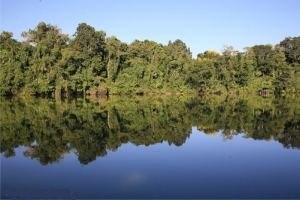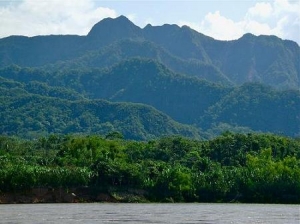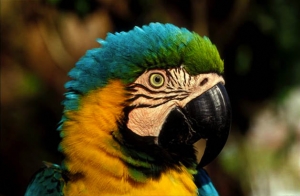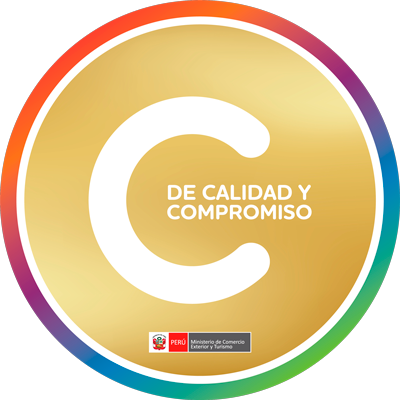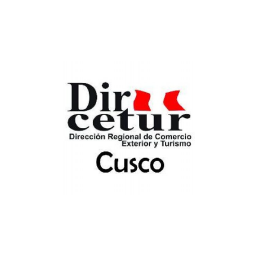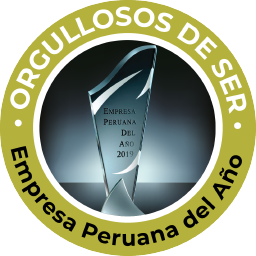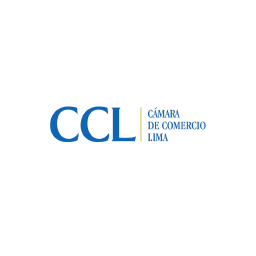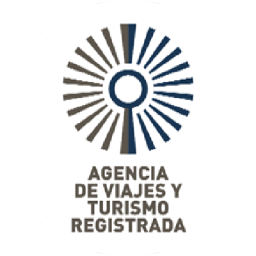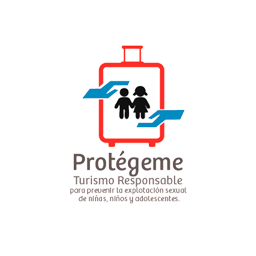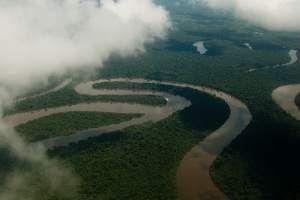
Jungle Rurrenabaque, Bolivia rainforest jungle tour 2 days
The Madidi National Park was established as a National Park by the Bolivian Government (DS#24123) on September 21, 1995. This Park has been classified by the National Geographic Magazine (“National Geographic Expedition to the Madidi”, March 2000) as one of the world’s largest bio-diverse reserves in Bolivia ranging from mountain cloud forest (rainforest) to dry tropical forest (pampas).
The humid, tropical climate of this park spreads out to the lowland forest, wild rivers and lakes, there is an unimaginable floodplain forest within the Madidi mosaic of eco-systems varying from humid sub tropical forest to savannahs (pampas) wetlands, river basins and beautiful lakes like Lago Gringo, Lago Isla, Lago Negro and San Fernando that are surrounded by thousand of hectares of the most under populated forest in the world. The Madidi National Park has 11% of the world’s species of flora and fauna (BBC News Article, “Ecotourism on the rise in Bolivia”, by David Atkinson). The Madidi region is considered one of the richest forest in Bolivia because of its flora, (mahogany trees are abundant) and also is the home of variety of autochthonous groups like the Chimane, Moseten, Tacana and Quechua. These indigenous communities can be accessed by Rurrenabaque one of the banks of Beni River.
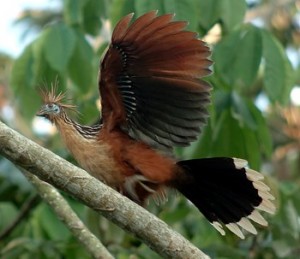
Location The Madidi Park covers 1,895,740 hectares = 18,957 km2. This region is the transition zone between Amazonian tropical Rainforest (west of Rio Beni) and Amazonian Savannah or Pampas (east of Rio Beni). The tropical Andes is indeed, one of the most impressive places to visit in South America because of its diversified location; mountains, forest and river habitats. There are more than 1000 species of neo-tropical birds (guans, curassows, harpy eagles, hawks, cormorant, herons) (85% of the Bolivia’s fauna); 300 species of mammals (44% of the tropical forest) like pink river dolphins, difficult to see or rare in other Amazon environments and other countless variety of fish that inhibit this area. There is also world class fly fishing along the Tuichi, a major tributary to the Amazon River.
Other mammals are the red howler, brown capuchin and many more; 200 species of reptiles and amphibians (black caimans, anacondas, snakes, lizards, etc) and more than 6000 plant species of vegetables and plants (33% of the flora) that grow in the wilderness of the Amazon. This national park is located in the Northern part of the Department of La Paz between the provinces of Abel Iturralde and Franz Tamayo (30 Km west of Rurrenabaque). At the western edge is the Peruvian border that extends eastwards along the Andes Cordillera branches, plunging deeply into the Amazon area. It is the origin of important rivers such as Tuichi, Madidi, Heath and Quendeque whose waters work their way down to the Amazons River. If you travel by bus to the Madidi Park, you will be exposed to tremendous natural features from the snow covered Apolobamba Mountain of 6,999 meters to the 150 meters above the sea level of the lowlands that forms the Amazonic basin (Heath River), a river that facilitates access to the tropical forest. Powerful waterfalls with an average precipitation that fluctuate from 4000mm to 800 mm. This trip is going to be for you an unforgettable experience!
Climate + Temperatures
The weather is hot and humid throughout the year; rainfall varies from 700 mm in the dry season to almost 5000 mm in the wet season. January through March is the rainy season. June through August (winter) has occasional cold periods and exceptional clear sky. Cold fronts or “surazos” are common in the western lowlands. April through October is the dry season – the best for outdoors.
Attractions:
Flora and fauna. A diversity of habitats, river, mountains and native communities.
Activities
*Wildlife encounters.
*Bird watching, fishing, canoeing and trekking, sailing, eco-tourism and biological Research, nature photography.
Day 1: National park Madidi
Hrs. 08:30 – 09: 00 am. Crossing of Rurrenabaque to San Buenaventura to pay the entrance fee to the Park National Madidi, later begins the trip by the Beni River in motor boat. We will provide individual life-jackets to the tourists, during the trip it is possible to be observe different landscapes like the hill from the “bullet” and variety of birds.
Hrs. 12:30 – 14: 00 pm. Arrival and accommodation in the camp area (Ecolodge) located within the territory of indigenous “TOREWA”, next we will prepare the lunch. Ecolodge “TOREWA” jatata (ambient and fresh with good protection against mosquitoes)
Hrs. 15:00 – 18: 00 pm. We will leave the camping and go for a walk to CHUCHIOS” observing different species from medicinal to toxic insects that exist in the region. We will arrive at a stream (Saocalito), where we will listen to the song of turkey, hens, etc. We will take while your guide gives you information about the birds that exist in the area. We will continue by footpath observing the diversity of palms in the region, which generally have a lot of fruit. We will have about a 30% probability of seeing different types from monkey, by the strong noises emitted by them in search of their food. Their diet mainly consists of insects and fruit.
Hrs. 18:00 – 18: 30 pm. Return to the campsite where we will have some snacks, (coffee, milk and cakes). We will then have dinner.
Day 2:
Hrs. 08:00 – 08: 30 am. Breakfast (variety of fruits, cakes, pancakes, coffee and milk). We will leave the campsite in search of the “ILIRIA”: a plant that serves for a natural link, the SIYAYA: a palm of yellow flowers that are a natural perfume of the forest (used by the natives). Also we will look for the “SOLIMAN”: a very toxic tree used for hunting. The “BIBOSI” another tree that is used for hunting, most of these trees are over 100 years old.
Hrs. 12:00 – 12: 30 pm. We will return to the campsite “TOREWA” where we will have lunch.
Hrs. 1:30 – 18: 00 pm. Transfer to the boat to return to Rurrenabaque.
Informacion:
*We work with one of the 6 companies with Authorizacion to enter the Madidi national park.
*Our guides are credited by the Madidi National Park.
*The differences in this service are the same to those of tour of Pampas
Includes:
Local tour guide, chauffeur, chef (vegetarian food available) boots for the treks, bottled water, first aid kit, full meals (breakfast, lunch and dinner). Transportation (4×4), motor boat, camping equipment (beds, bed-sheets, bedcovers) bathrooms with showers.
Not included:
*The service does not include entrance fee to Madidi National Park (Bs 100). (the price may change according to the authorities).
*The campsite does not guarantee working showers.
*Does not include Transfer in/out + Flighs: (we can arrange this for you)



